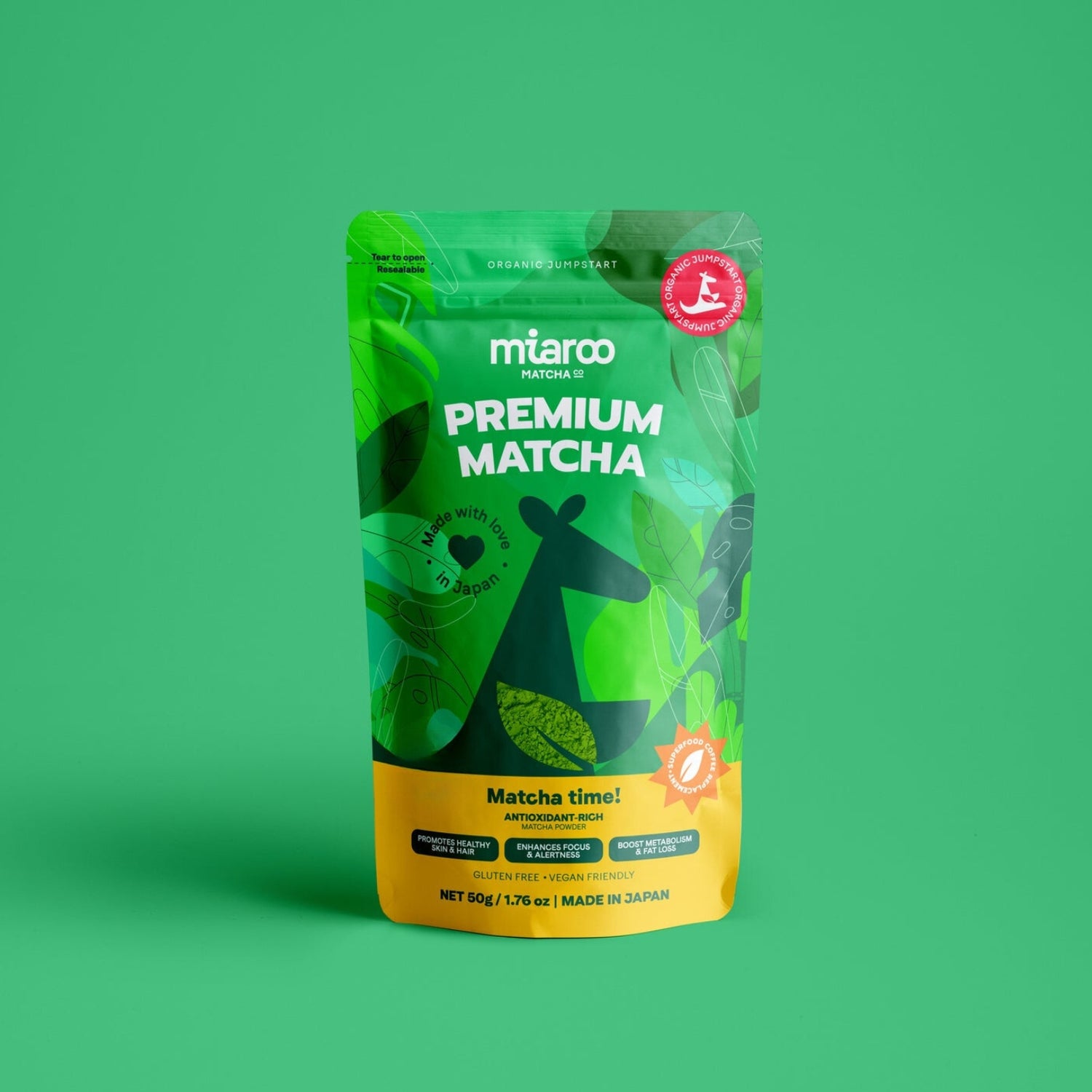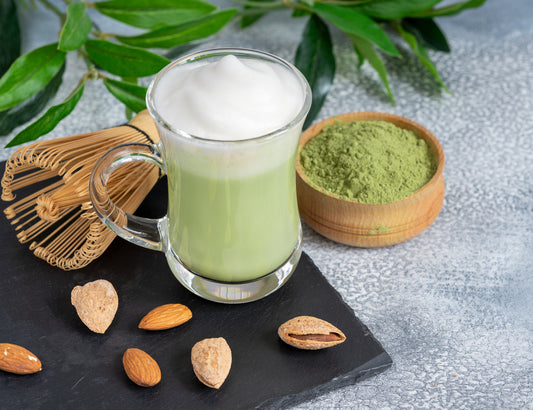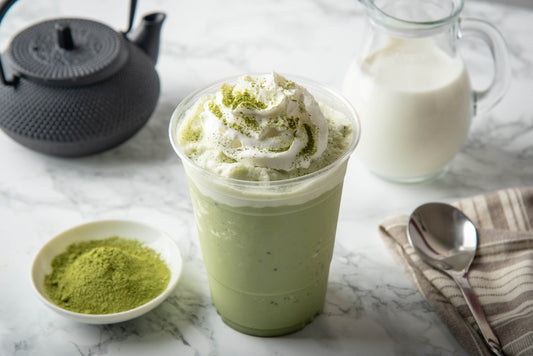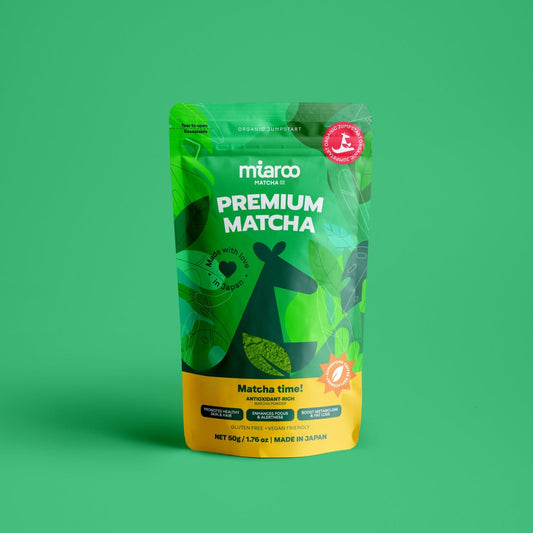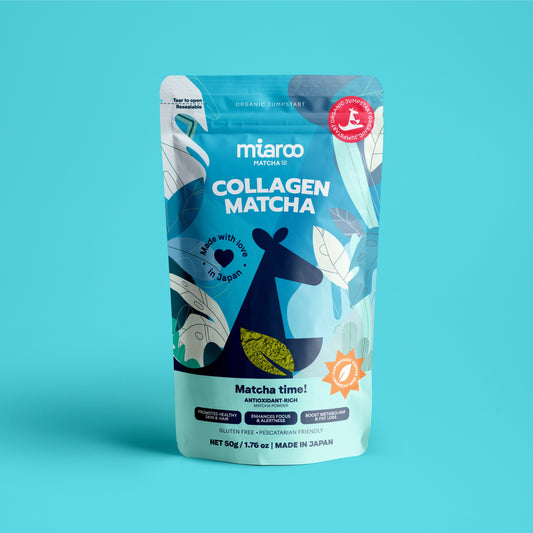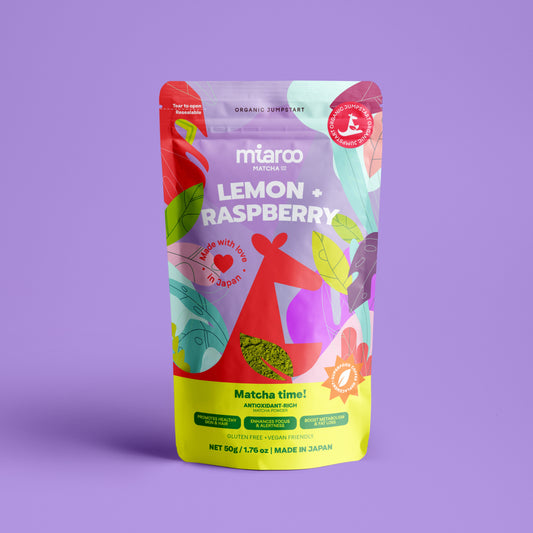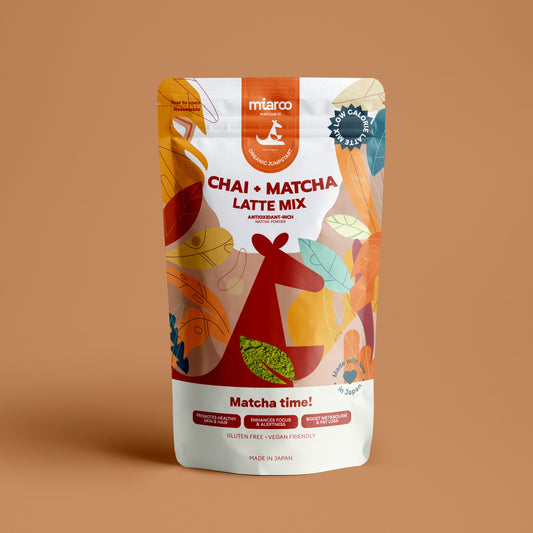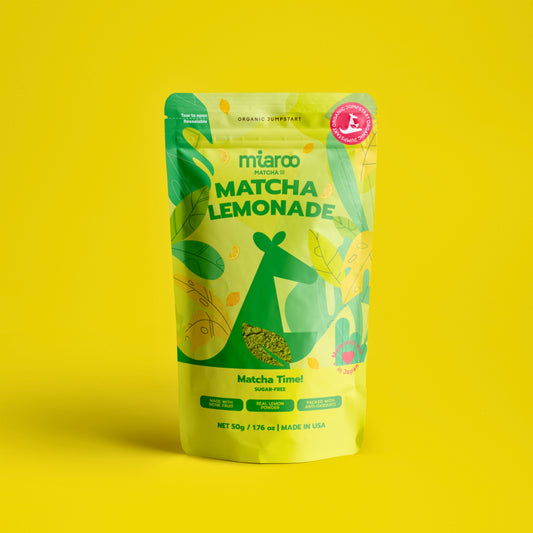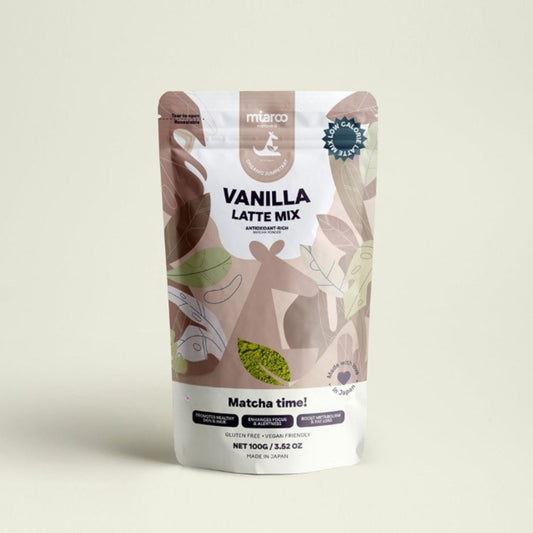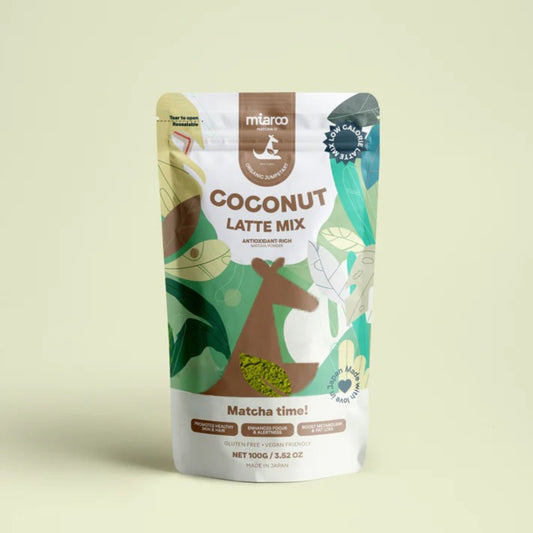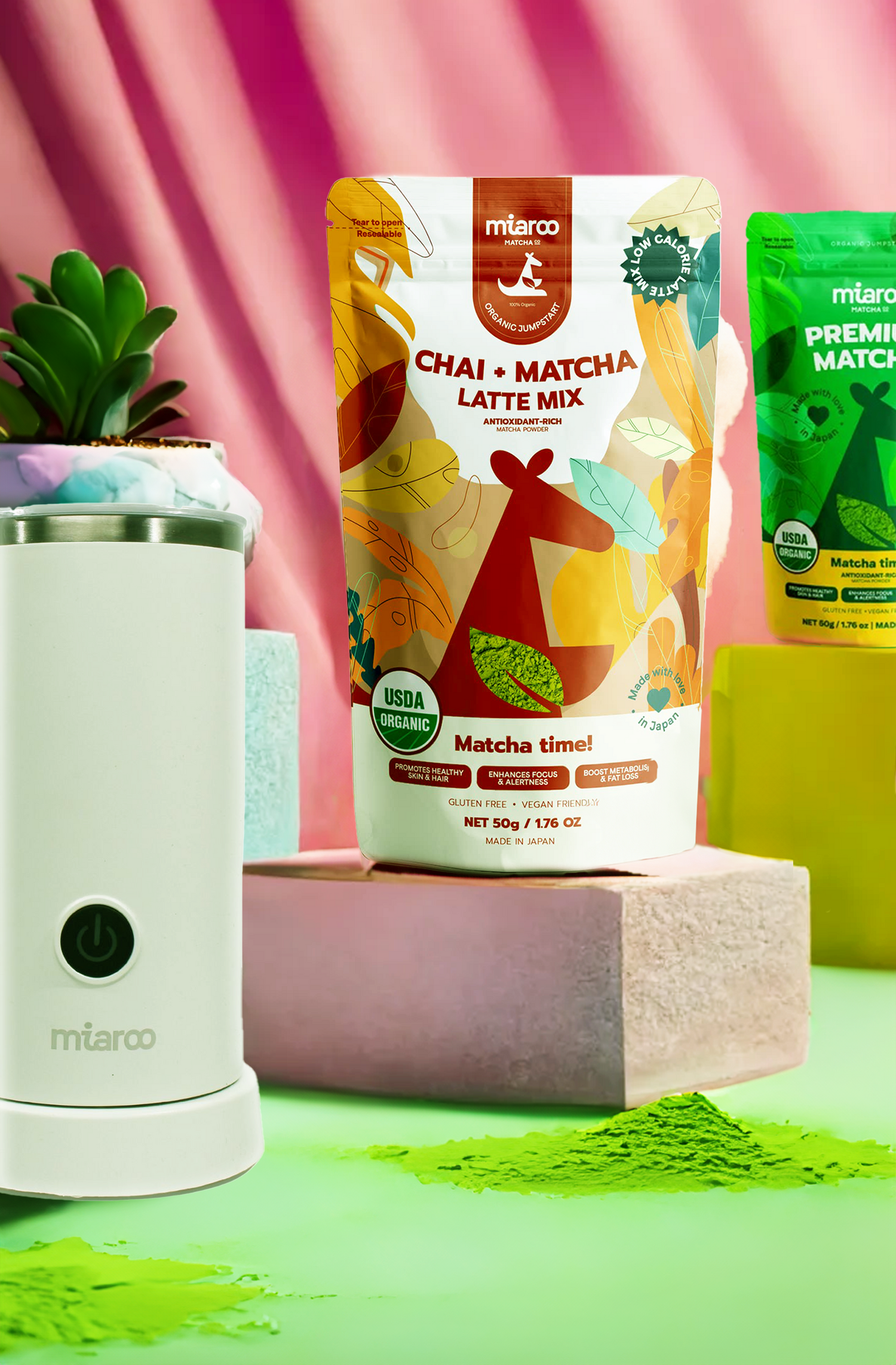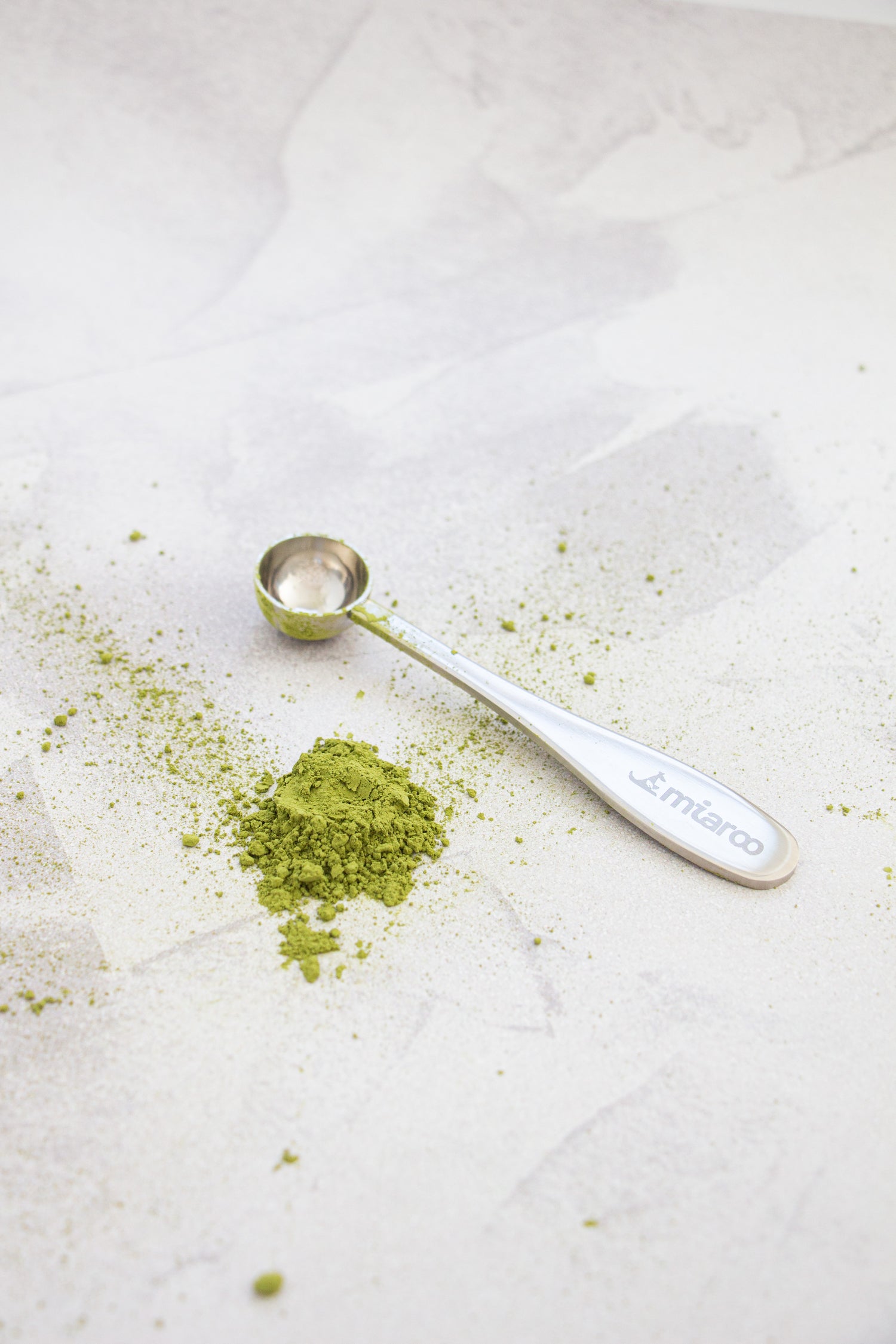Matcha Benefits for Fitness & Weight Management
Whether you're a Matcha veteran or you're new to this wonderful world of natural and nutritional energy, you've likely heard that Matcha is a superfood with a wide array of health benefits.
But those of us on fitness joruneys have to be very careful about what goes into our body. If you are looking to:
- Gain Muscle with Matcha
- Lose Weight with Matcha
- Limit Sweet-tooth Cravings
- Manage or Maintain Your Existing Weight
If you are looking to get started with matcha for the first time, this article breaks down exactly what is matcha and how to use it for beginners.
But if you want to be intentional with you morning caffeine ritual as it applies to your fitness journey, you've come to the right place.
Here is how Matcha contributes to fitness and weight management:
- Rich in Antioxidants: Matcha is packed with catechins, a type of antioxidant that helps in reducing cell damage and preventing chronic diseases. This also helps your healthy muscle cells recover better.
- Enhances Energy Levels: Matcha provides a sustained energy boost, thanks to the combination of caffeine and L-theanine. L-theanine modifies caffeines behavior in the body, which is why so many pre-workouts have L-Theanine alongside caffeine. This was all inspired by Matcha which this naturally.
- Boosts Metabolism: Regular consumption of Matcha can enhance metabolism and aid in fat burning, making it a great addition to a weight loss diet.
- Detoxifies the Body: The high levels of chlorophyll in Matcha help in detoxifying the body, which is essential for maintaining optimal health during fitness routines.
And Lastly, but separately because it is so important:
- Matcha has prebiotic and probiotic properties which help reset your gut with healthy bacteria. This has a myriad of positive benefits like reducing migraines, improving skin health, improving overall energy level and reducing lethargic tendencies.
As anyone who has been on a fitness journey knows, a significant difficulty in maintaining a diet or weight management program of any sort is having the energy to overcome existing habits and programed behaviors.
Your energy levels and hormones are already being tempered with through your change in diet. By reseting your gut, matcha helps regulate your body's reaction to these changes.
1.How to Prepare Low-Calorie Matcha Teas and Lattes
While Matcha is inherently low in calories, the way it's prepared can significantly impact its caloric content. Here are some tips to enjoy Matcha without the guilt:
- Basic Matcha Tea: Start with a traditional Matcha tea. Whisk 1-2 teaspoons of Matcha powder in a cup of hot water. This simple preparation is virtually calorie-free and retains all the health benefits.
- PRO TIP: If you have the Miaroo Heated Matcha Frother, you don't need to heat the water separately. Just throw in your matcha with water and it's done within a minute.
- Matcha Latte with Almond Milk: For a low-calorie Matcha latte, use almond milk or coconut milk instead of whole milk. Sweeten it naturally with stevia or monk fruit extract.
- If you are counting your macronutrients, this is the lowest impact.
- If you have room for more calories, use cashew milk for a better froth!
- You can grab our frother here, which heats and froths any milk and turns it into matcha in less than 1 minute.
- Iced Matcha Delight: Mix Matcha powder with cold water and a few ice cubes for a refreshing summer drink. Add a splash of lemon juice and a teaspoon of honey for an extra zing.
- Matcha Smoothie: Blend Matcha with frozen berries, a banana, and Greek yogurt for a nutritious and low-calorie smoothie. If this is your pre-workout or post-workout drink, throw in your choice of protein powder for good measure.
2. How Does Matcha Quality Affect It's Nutritional Composition & Flavor?
The quality of Matcha powder is crucial. Opt for ceremonial premium grade Matcha, which is the highest quality at the best value, offering a more delicate taste and a higher concentration of antioxidants.
And it's not just the taste, studies have shown that higher quality matcha offers more nutrients and is absorbed better by the body.
Does the body absorb matcha well in powdered form?
If you were to take matcha as a powder, either via pill or as a dry scoop, your body would not absorb it as well as it would a matcha tea or latte.
Our body absorbs nutrients mostly through the surface area of our small and large intestines, so a powder shuffling it's way through would cover as much surface area as a liquid.
Imagine water going through a pipe verses concentrated powder being pushed through the pipe.
3. How often should you drink Matcha?
While Matcha is beneficial, it's important to consume it in moderation. Due to its caffeine content, limit your intake to 1-2 cups per day, especially if you're sensitive to caffeine.
And that's all! Thanks for reading along and hopefully now you know:
1. Why matcha is beneficial for fitness and weight management
2. How to prepare low-calorie, delicious matcha drinks
3. How to get the most nutrition out of your matcha
4. How often you should drink matcha
And of course, if we had to recommend a high quality, ceremonial premium grade matcha at the best value, we'd point you right over to our COLLECTION OF FUNCTIONAL MATCHA BLENDS.
Because matcha can be as versatile and fun as it is beneficial for our body!
